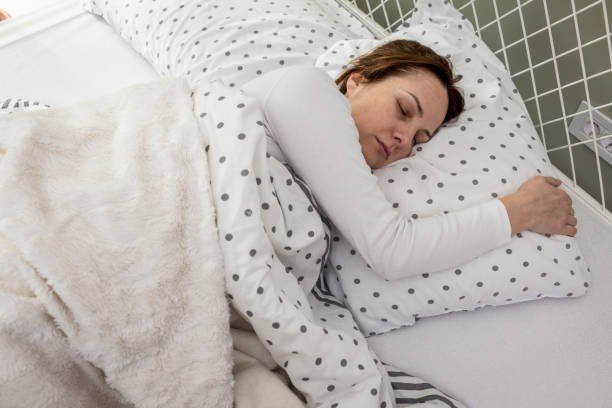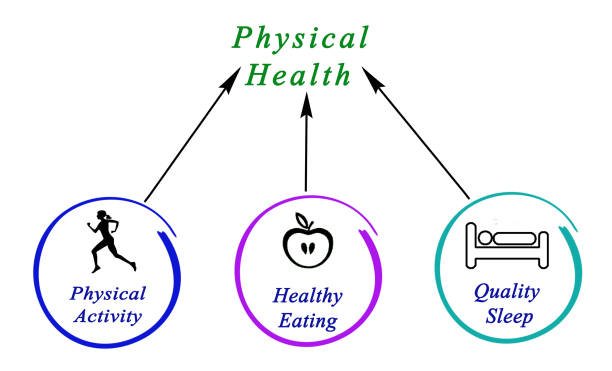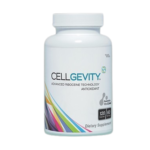
Imagine waking up each morning feeling fully refreshed, energized, and ready to take on the day. This is what quality sleep can do for you—and it’s no exaggeration to say that sleep is the cornerstone of good health. Just like eating a balanced diet and exercising regularly, getting enough restful sleep is non-negotiable for maintaining your physical, mental, and emotional well-being.
Sleep is when your body repairs, your brain processes information, and your immune system recharges. Without it, even the best self-care routines can fall flat. That’s why making sleep a priority is one of the simplest yet most impactful steps you can take to optimize your overall health.
The Prevalence of Sleep Disorders and Insomnia
Unfortunately, restful sleep isn’t a reality for everyone. Millions of people worldwide struggle with insomnia or other sleep disorders, and this trend is only increasing across all age groups. Poor sleep isn’t just an inconvenience—it has real and serious health consequences. Studies link inadequate sleep to conditions like:
- Depression and anxiety
- Cognitive impairments and mental disorders
- Heart disease and high blood pressure
- Metabolic syndrome and weight gain
The ripple effects can disrupt nearly every aspect of life, from work performance to personal relationships. It’s clear that finding solutions for better sleep is more important than ever.
Introducing Natural Sleep Improvement Strategies
Thankfully, there are ways to improve sleep quality naturally, without resorting to harsh medications. Simple lifestyle changes, combined with innovative supplements like Cellgevity, can make a world of difference. In this post, we’ll explore how natural solutions, particularly Cellgevity, can support better sleep by addressing its root causes. Whether you’re battling sleepless nights or looking to elevate your rest, this guide will equip you with insights to transform your sleep—and your life.
Exploring Natural Ways to Improve Sleep
Sleep isn’t just about how long you stay in bed—it’s about the quality of rest your body gets. Fortunately, you can take steps to enhance your sleep without turning to medications. Let’s look at some natural, science-backed methods to help you wake up refreshed and energized.
Establishing a Consistent Sleep-Wake Cycle
Consistency is key when it comes to better sleep. Your body operates on a natural rhythm called the circadian rhythm, which regulates your sleep-wake cycle.
- Stick to a schedule: Going to bed and waking up at the same time every day helps reinforce this cycle, making it easier to fall asleep and wake up naturally.
- Avoid weekend disruptions: It may be tempting to stay up late or sleep in on weekends, but these habits can throw off your rhythm and leave you feeling groggy.
By creating a predictable routine, your body learns when it’s time to wind down, paving the way for more restorative sleep.
Optimizing Your Sleep Environment
Your bedroom should be a sanctuary for sleep. An ideal sleep environment can make a significant difference in how quickly you fall asleep and how deeply you rest.
- Minimize light and noise: Use blackout curtains to block outside light, and consider earplugs or a white noise machine to eliminate disruptive sounds.
- Keep it cool: A slightly cooler room temperature, around 60–67°F (15–19°C), has been shown to promote better sleep.
- Invest in comfort: Ensure your mattress and pillows are comfortable and supportive, and use breathable bedding for added coziness.
A peaceful environment signals your body that it’s time to relax and prepares you for quality rest.
Lifestyle Habits That Promote Sleep

Small adjustments to your daily habits can have a significant impact on your sleep quality.
Diet: The Role of Food in Sleep
- Limit caffeine and alcohol: Avoid stimulants like coffee, tea, or energy drinks in the afternoon and skip alcohol close to bedtime, as they can interfere with your ability to fall or stay asleep.
- Avoid heavy meals before bed: Large meals can make it harder for your body to relax. Opt for light snacks if you’re hungry late in the evening.
- Sleep-friendly foods: Incorporate foods rich in tryptophan (like turkey, bananas, and almonds), magnesium (found in spinach and nuts), and melatonin (in cherries and kiwi) to naturally support better sleep.
Exercise: Move Your Way to Restful Sleep
- Stay active: Regular physical activity not only improves your health but also helps you fall asleep faster and enjoy deeper sleep.
- Timing matters: Aim for exercise earlier in the day; vigorous activity too close to bedtime can leave you feeling too energized to relax.
Relaxation Techniques: Preparing for Rest
- Create a calming bedtime routine: Activities like taking a warm bath, reading a book, or listening to soft music signal your body that it’s time to wind down.
- Try relaxation practices: Techniques such as progressive muscle relaxation or mindfulness meditation can ease tension and quiet your mind, making it easier to drift off.
By incorporating these habits, you can set the stage for better sleep while giving your body the chance to reset and recharge naturally.
These strategies form the foundation of good sleep hygiene. However, when combined with supplements like Cellgevity, they can provide even more robust support for improving sleep quality.
The Role of Supplements in Sleep Enhancement

For those struggling with sleepless nights, natural supplements can offer a promising solution. These supplements work by addressing specific factors that influence sleep, such as stress, hormonal imbalances, or nutrient deficiencies. Here’s a closer look at some common options and how they may help improve sleep quality.
Melatonin: Regulating the Sleep-Wake Cycle
Melatonin is often called the “sleep hormone” because it plays a central role in regulating your body’s internal clock, or circadian rhythm. Produced naturally by the pineal gland, melatonin levels rise in the evening to signal that it’s time for sleep.
- How it works: Taking melatonin supplements can help reset your sleep cycle, particularly if you’re dealing with jet lag, shift work, or insomnia.
- Benefits: Studies have shown that melatonin can reduce the time it takes to fall asleep (sleep onset latency) and improve overall sleep quality.
If you’re seeking a gentle way to support your body’s natural rhythms, melatonin is a well-researched, widely used option.
Magnesium: The Relaxation Mineral
Magnesium is a vital mineral that supports countless bodily functions, including muscle relaxation and nerve transmission. It also plays a role in regulating neurotransmitters that promote restful sleep.
- How it helps sleep: Magnesium increases levels of gamma-aminobutyric acid (GABA), a calming neurotransmitter that helps the brain and body relax.
- Best for: Individuals with insomnia or those experiencing restless legs, muscle cramps, or stress-related sleep difficulties.
Incorporating magnesium into your routine—through food or supplements—can encourage deeper, more restorative sleep.
Gamma-Aminobutyric Acid (GABA): The Calm You Need
GABA is a naturally occurring neurotransmitter that inhibits excitatory signals in the brain, promoting relaxation and reducing anxiety.
- Sleep connection: By enhancing GABAergic neurotransmission, this supplement helps regulate both REM (rapid eye movement) and NREM (non-rapid eye movement) sleep phases. This balance is crucial for waking up refreshed.
- Additional benefits: GABA can also help those dealing with high stress or overactive thoughts at bedtime.
For individuals whose sleeplessness is linked to stress or anxiety, GABA offers targeted relief.
Other Potential Sleep-Enhancing Supplements
While the options above are well-known, there are additional supplements that may support sleep:
- Zinc: This essential mineral has been linked to improved sleep quality and duration, especially when combined with magnesium.
- Tart cherry juice: Naturally rich in melatonin, tart cherries are often recommended for improving sleep onset and duration, though more research is needed to confirm their efficacy.
These options may complement other strategies, but it’s essential to explore their potential benefits with an open yet cautious mindset.
The Importance of Consulting a Healthcare Professional
Before adding any supplement to your routine, consult a healthcare professional. Here’s why:
- Personalized advice: Supplements affect everyone differently based on factors like age, lifestyle, and health conditions.
- Medication interactions: Some supplements may interfere with medications or other treatments you’re currently taking.
- Avoiding overuse: Excessive or improper use of supplements can lead to unwanted side effects or diminish effectiveness.
By seeking professional guidance, you can make informed decisions and optimize your sleep support plan with confidence.
Using supplements thoughtfully, alongside lifestyle changes, can be a game-changer in achieving better sleep. Always aim for a balanced approach to ensure long-term benefits.
Understanding Cellgevity and Its Potential Impact on Sleep
When it comes to improving sleep naturally, Cellgevity offers a unique approach that goes beyond conventional supplements. By supporting the body at a cellular level, it addresses underlying factors that may contribute to poor sleep quality. Let’s explore what makes Cellgevity stand out and how it could be a game-changer for your nightly rest.
What is Cellgevity?
Cellgevity is a food supplement designed to enhance your body’s natural ability to produce glutathione, often called the “master antioxidant.” Unlike drugs or sleep aids, it works holistically to support your overall well-being.
- Key ingredient – RiboCeine: At the heart of Cellgevity is RiboCeine, a patented compound that helps the body produce glutathione more effectively. This process is crucial for combating oxidative stress, which can wreak havoc on your health—including your sleep patterns.
- Not a quick fix: It’s important to note that Cellgevity isn’t a sedative or medication. Instead, it offers long-term support for your body’s natural processes.
The Science Behind Glutathione and Sleep
Glutathione: The “Master Antioxidant”
Glutathione is a powerful molecule that detoxifies harmful substances, strengthens the immune system, and protects cells from damage caused by free radicals. It’s found in every cell of the body and plays a vital role in maintaining overall health.
- Cellular defense: Glutathione neutralizes oxidative stress, which can lead to inflammation and disrupt normal bodily functions.
- Sleep connection: Since sleep is a critical time for repair and recovery, having adequate glutathione levels ensures your body can rejuvenate effectively overnight.
The Link Between Oxidative Stress and Sleep
Oxidative stress occurs when there’s an imbalance between free radicals and antioxidants in the body. This imbalance can negatively impact sleep in several ways:
- Disrupted sleep patterns: Studies suggest that oxidative stress interferes with your brain’s ability to regulate sleep-wake cycles.
- Sleep disorders: Persistent oxidative stress has been linked to conditions like insomnia, obstructive sleep apnea, and restless leg syndrome.
By reducing oxidative stress, you can support your body’s natural sleep mechanisms.
Glutathione’s Potential Role in Sleep Regulation
Emerging research indicates that glutathione might play a role in maintaining sleep homeostasis, the body’s internal balance for restorative rest.
- Antioxidant power: By neutralizing free radicals, glutathione helps minimize the cellular damage that can interfere with deep, uninterrupted sleep.
- Calming the system: Its ability to reduce inflammation and stress on the body may create a more conducive environment for restful sleep.
Bridging the Gap: Cellgevity and Increased Glutathione
By boosting glutathione levels, Cellgevity offers a potential pathway to better sleep:
- Combating oxidative stress: Cellgevity’s RiboCeine technology enhances glutathione production, which can address oxidative imbalances linked to sleep issues.
- Improved recovery: With higher antioxidant levels, your body may find it easier to recover during sleep, leaving you feeling more refreshed and energized.
While research specifically focusing on Cellgevity’s direct effects on sleep is still in its early stages, its ability to enhance glutathione levels presents a compelling case for its role in sleep health.
A Solution? Cellgevity

Awaken your cells and Live healthier.
Cellgevity offers a natural, science-backed approach to improving sleep by addressing the root causes of oxidative stress. By supporting your body’s ability to produce glutathione, it holds the potential to transform the way you rest and recover every night.
Research on N-Acetylcysteine (NAC) and Its Implications for Cellgevity
When discussing the impact of Cellgevity on sleep quality, it’s essential to dive into the science behind one of its key components: N-Acetylcysteine (NAC). This compound plays a significant role in glutathione synthesis, and emerging research provides fascinating insights into how it may influence sleep patterns.
NAC: A Crucial Precursor to Glutathione
At its core, NAC is a building block for glutathione, the body’s most powerful antioxidant.
- Boosting glutathione levels: NAC helps replenish glutathione stores, especially in times of oxidative stress, ensuring that your cells remain protected and function optimally.
- Detoxification support: By increasing glutathione, NAC aids the body in removing harmful toxins that can disrupt physiological processes, including sleep regulation.
By addressing oxidative stress and promoting cellular repair, NAC sets the stage for restorative sleep.
What Does Research Say About NAC and Sleep?
A compelling study on individual revealed interesting connections between NAC and improved sleep quality.
- Reduced sleep onset latency: The study found that administering NAC shortened the time it took for the person to fall asleep, suggesting its potential role in calming the nervous system.
- Enhanced delta power during sleep: Delta power, associated with deep, restorative sleep stages, showed noticeable improvement in NAC-treated individual.
- The redox-sleep connection: Researchers highlighted a potential link between redox reactions (the balance of free radicals and antioxidants) and sleep homeostasis, suggesting that oxidative stress might disrupt natural sleep patterns.
These findings point to NAC’s potential to support sleep through its antioxidant properties and ability to influence key biochemical pathways.
Linking NAC Research to Cellgevity and Sleep
Cellgevity builds on the foundation of NAC by incorporating it into its proprietary RiboCeine formula, enhancing the body’s ability to produce glutathione.
- Parallel benefits: Just as NAC supports glutathione synthesis and combats oxidative stress, Cellgevity amplifies this effect by delivering an optimized mechanism for glutathione production.
- Potential for better sleep: By addressing oxidative imbalances that may interfere with sleep, Cellgevity could offer a similar pathway to improved sleep quality as suggested by NAC research.
However, it’s crucial to note that while the study on NAC provides promising insights, it was conducted on mice. More extensive research, particularly in humans, is needed to confirm how these findings translate to supplements like Cellgevity and their direct impact on sleep.
A Promising Avenue for Natural Sleep Support
The role of NAC in enhancing glutathione levels, combined with preliminary research linking it to improved sleep patterns, positions Cellgevity as a supplement with potential benefits for those struggling with sleep issues. While more studies are needed, the science so far suggests that addressing oxidative stress could be key to unlocking better, more restorative sleep.
Cellgevity and Specific Sleep Disorders
Sleep disorders can significantly disrupt daily life, leading to fatigue, difficulty concentrating, and long-term health consequences. While many people seek natural remedies to address these challenges, Cellgevity is often highlighted as a potential supplement to improve overall health and possibly support better sleep. Let’s explore how it may relate to specific sleep disorders, keeping in mind the importance of evidence-based approaches and professional medical advice.
Insomnia

What is Insomnia?
Insomnia is one of the most common sleep disorders, characterized by difficulty falling asleep, staying asleep, or waking up too early and not being able to return to sleep. Chronic insomnia can lead to mood disturbances, reduced productivity, and increased health risks.
Could Cellgevity Help?
- Glutathione’s potential role: Cellgevity boosts glutathione, the body’s “master antioxidant,” which may help reduce oxidative stress—a factor believed to contribute to sleep difficulties.
- Improved relaxation: By supporting cellular repair and reducing inflammation, Cellgevity could theoretically enhance relaxation and promote a smoother transition to sleep, potentially shortening sleep onset latency.
Important Note: While these mechanisms are promising, there is no direct scientific evidence that Cellgevity specifically alleviates insomnia. Individuals with insomnia should seek tailored advice from healthcare providers.
Sleep Apnea

What is Sleep Apnea?
Sleep apnea is a serious disorder where breathing repeatedly stops and starts during sleep. It can lead to fragmented sleep, daytime fatigue, and long-term cardiovascular issues.
Could Cellgevity Play a Role?
- Antioxidant support for cellular health: Oxidative stress is thought to exacerbate the inflammation and vascular issues often associated with sleep apnea. Cellgevity’s ability to boost glutathione could, in theory, provide some indirect benefits.
- Energy production: By supporting mitochondrial function, Cellgevity might improve daytime energy levels for those experiencing fatigue from interrupted sleep.
Caution: There is no evidence that Cellgevity directly treats or improves the symptoms of sleep apnea. Treatment options like CPAP machines or surgery are typically required, and any supplementation should be discussed with a healthcare provider.
Restless Leg Syndrome (RLS)

What is Restless Leg Syndrome?
RLS is a condition characterized by an uncontrollable urge to move the legs, usually accompanied by uncomfortable sensations. Symptoms often worsen at night, making it difficult to fall asleep or stay asleep.
Could Cellgevity Help?
- Addressing oxidative stress: Studies suggest that oxidative stress may play a role in RLS symptoms. By increasing glutathione levels, Cellgevity could theoretically alleviate some of this stress.
- Nutritional balance: RLS has been linked to deficiencies in certain nutrients. While Cellgevity isn’t specifically designed to address these, its role in supporting overall cellular health might complement other treatments.
Scientific Evidence: As of now, no studies have directly examined the effects of Cellgevity on RLS. Managing RLS often involves lifestyle changes, specific nutrient supplementation, or medication prescribed by a physician.
A Word of Caution and Professional Guidance
While the potential benefits of Cellgevity for general health are supported by its ability to boost glutathione, there is no direct scientific evidence linking it to improvements in specific sleep disorders like insomnia, sleep apnea, or RLS.
What Should You Do?
- Consult a healthcare provider: Always seek professional advice before using supplements, especially for managing sleep disorders.
- Focus on proven treatments: Cellgevity can complement a healthy lifestyle, but it should not replace evidence-based medical interventions.
- Prioritize personalized care: Each sleep disorder requires a unique approach, tailored to the individual’s needs.
By taking an informed and proactive approach, you can better understand how supplements like Cellgevity fit into a comprehensive plan for better sleep and overall well-being.
Improving Sleep Naturally: The Impact of Cellgevity on Sleep Quality
Struggling with sleep can be exhausting—literally and figuratively. For many, the idea of improving sleep naturally without resorting to harsh medications is a welcome solution. While scientific research into the effects of Cellgevity on sleep is still evolving, anecdotal evidence and careful usage guidelines shed light on its potential benefits for sleep quality.
Anecdotal Evidence and Testimonials
Real stories from real people often resonate more than abstract scientific data. Many individuals who use Cellgevity for its glutathione-enhancing properties have shared positive experiences regarding improved sleep. While personal testimonials are not definitive proof, they offer insight into how Cellgevity might work for some individuals.
User Experiences with Cellgevity and Sleep
- Improved relaxation: Some users report feeling more relaxed and less anxious after incorporating Cellgevity into their daily routine, which has made it easier for them to fall asleep.
- Better energy regulation: Others mention waking up feeling more refreshed and experiencing fewer interruptions during the night, possibly due to improved cellular repair and antioxidant support.
- A consistent pattern: Several accounts highlight the gradual improvement in sleep quality after consistent use, reinforcing the idea that Cellgevity works best over time.
A Word of Caution About Testimonials
While these personal accounts are encouraging, it’s important to remember that they represent individual experiences, not universal outcomes. Your body is unique, and what works for one person may not work the same way for another.
Disclaimer:
Cellgevity is a supplement designed to support overall health and wellness. It is not a treatment for sleep disorders. Always consult with a healthcare professional for personalized advice.
Dosage, Usage Guidelines, and Precautions
When introducing any supplement into your routine, following the correct dosage and usage guidelines is essential for safety and effectiveness.
Recommended Dosage and How to Use Cellgevity
- Standard dosage: The recommended dosage of Cellgevity is two capsules, twice a day, ideally taken with meals.
- Best practices for use: Pairing Cellgevity with a healthy lifestyle, including proper nutrition and regular exercise, may enhance its benefits. Consistency is key, so try to take it at the same times each day.
Potential Side Effects and Precautions
Although Cellgevity is generally well-tolerated, some users may experience mild side effects such as:
- Digestive discomfort: This can occur as your body adjusts to the supplement.
- Headaches: These are uncommon but may arise due to detoxification processes.
Precautions:
- Medical conditions: If you have any underlying health issues or are pregnant or breastfeeding, consult a healthcare professional before using Cellgevity.
- Medication interactions: Some ingredients in Cellgevity may interact with medications, particularly blood thinners or other supplements.
- Allergies: Review the ingredient list to ensure you’re not allergic to any of its components.
A Professional’s Touch
For the best results, always include your doctor in the conversation when trying a new supplement. They can help determine whether Cellgevity aligns with your health goals and any pre-existing conditions you might have.
Wrapping It Up
Cellgevity has captured the attention of those seeking natural ways to improve their sleep, thanks to its unique ability to boost glutathione levels and support cellular health. While testimonials highlight its potential, it’s essential to approach these claims responsibly, with an understanding of proper usage and realistic expectations.
By combining Cellgevity with healthy habits and seeking professional advice, you can create a solid foundation for better sleep—and better health overall.
Conclusion
Improving sleep naturally is a goal many strive for, and while Cellgevity shows potential in this area, it’s important to approach its benefits with a balanced perspective. Its ability to boost glutathione production and combat oxidative stress positions it as a valuable supplement for overall wellness, which may indirectly support better sleep.
However, as promising as this sounds, the research directly linking Cellgevity to improved sleep quality remains limited. This is not a reason to dismiss its potential but rather an invitation to stay curious and informed as more studies emerge.
A Holistic Path to Better Sleep
Good sleep doesn’t come from one solution alone. A holistic approach that incorporates:
- Healthy lifestyle choices: Regular exercise, a balanced diet, and stress management.
- Consistent sleep hygiene: A cool, dark, and quiet bedroom; a regular sleep schedule; and limiting screen time before bed.
- Thoughtful supplementation: Products like Cellgevity, used responsibly and under professional guidance, may complement these efforts.
By focusing on the bigger picture, you create a sustainable foundation for better rest and overall health. If you’re considering Cellgevity as part of your sleep improvement plan, consult with a healthcare professional to ensure it aligns with your unique needs.
Better sleep is within reach—with the right tools, the right habits, and the right support.



